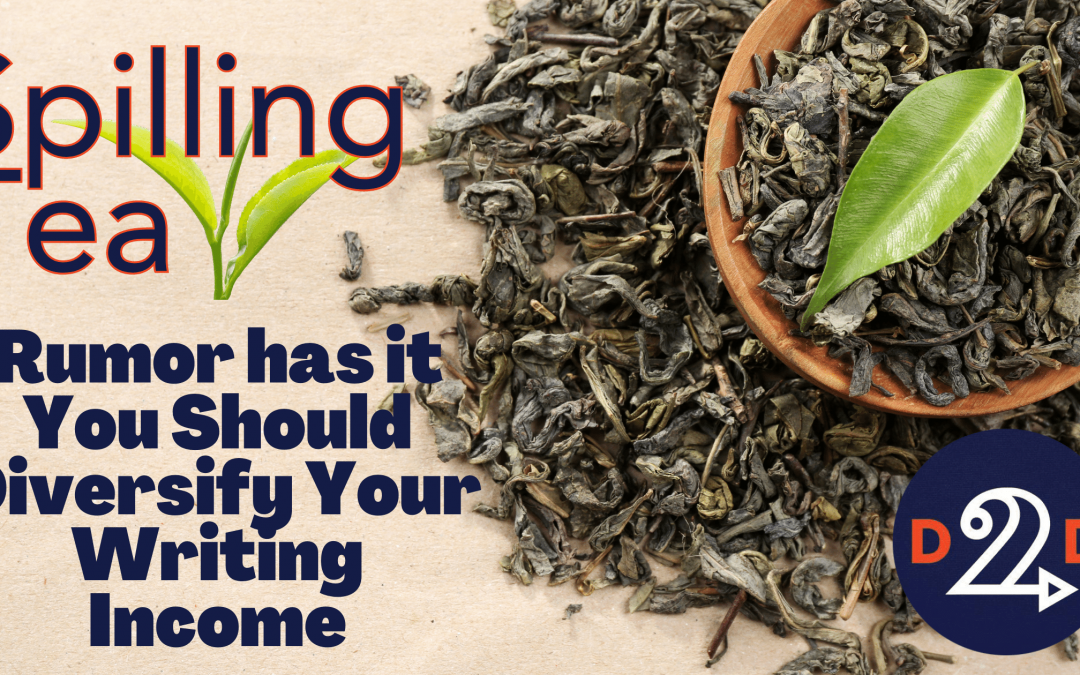When I was in my mid-twenties I went to hang out with a classmate from college. At the time he worked for Unilever—a multinational consumer goods company that owns a lot of the brands you’re probably familiar with. Dove, Hellmann’s, and Ben & Jerry’s are all Unilever brands. And so is Lipton Tea.
I don’t remember how we got on this topic, since we were both supposed to be studying for an exam. But on a break, probably with a pitcher of iced tea being poured into a couple of tumblers, my friend told me the secret to Lipton Tea’s secret to success.
“They source tea from a whole bunch of regions worldwide,” he said. “So, their tea isn’t made from just one type of tea leaf from one country. It’s made from hundreds of varieties from all over the world.”
“Why?” I asked.
“Because if there’s a drought somewhere, or a blight, or a fire, and the tea from one region is ruined or unavailable, they can just remove that one from the mix temporarily. The tea still tastes the same, no matter what. There’s enough tea to keep the supply going, and it’s always a consistent flavor.”
This whole conversation happened years before I started publishing my books and running my writing business, but it has stuck with me all this time. Because there’s a lesson here that all authors (and really all entrepreneurs) can benefit from.
As writers, we want our income to come from our words. Most of us hope that we can earn a living from writing, but even those who only want it to be a part-time gig are aiming to earn a little something. Writing is a lot of work and effort, and it’s good to see some reward for it.
If the past few years have taught us anything, though, it’s that nothing is guaranteed in life. There’s a decided up-and-down about earning your coin as a writer. One month you could be benefiting from a fairly unnatural surge in demand for books, and the next month you may be struggling to get someone to even look your way.
It will help you a great deal if you think of your writing as tea.
Since it got its start in 2012, Draft2Digital has been a powerful tool for getting books published as eBooks, to an ever-growing catalog of retailers worldwide. We’ve built a pretty robust system for uploading and converting your manuscript into a fully formatted ebook, and then distributing that ebook to most of the biggest platforms around for readers to buy it and read it.
Later, we were proud to add libraries to the options for you to distribute your books. We love libraries here, and we know a lot of readers discover books there first, then go on to become lifelong fans, typically buying the books from retailers.
A while back we partnered with Findaway Voices, now a division of Spotify, to make it easier for you to get your book narrated and distributed as an audiobook. There are billions of people listening to audiobooks all over the world, every day, and Findaway keeps growing their network to help you reach more markets.
Most recently, Draft2Digital officially launched D2D Print, our print on demand (POD) service that makes it seriously easy to get your book into paperback. You can even auto-convert your ebook to print with a few clicks.
Do you see a trend?
What we’re trying to do for authors is the same thing Lipton is doing for tea: We’re giving you the tools and resources to diversify as much as possible, so that you can keep the income flowing even when things might trend downward in a particular market.
The droughts and blights of the publishing world can come in many forms. Supply chain issues slowed down print for a time, and ebooks go through regular rises and falls due to everything from political turmoil to writer’s strikes. You just can’t quite ever really know what will impact any given sector of the industry. Which is why you should spread things out as much as possible—diversify, and disaster-proof your writing business.
This doesn’t just apply to formats.
Yes, you should have ebooks, print, and audiobooks as part of your offering to readers. Each of these has a different audience, which means they have a different market. One market may be up while another is down.
But this also applies to distribution. You’ve probably heard us talk about “exclusivity vs. wide distribution,” and that’s exactly what we’re talking about here, too. There have been numerous times over the past decade when exclusive programs such as KDP Select (KDPS) or Audible Content Exchange (ACX) have shuffled or changed rules, altered terms, reduced royalties and funds. When that happens, if your income is entirely dependent on that service, you’re just… well… up the proverbial biologically polluted waterway without a proper means of conveyance.
As writers, we need to constantly think in terms of consistency and diversification.
We want to write and publish consistently, and produce a consistent quality with our “product” (ie our books).
We want to diversify our source of revenue, make sure we are providing and marketing our books in as many markets worldwide as possible. That includes every retailer we can reach, every library, every subscription service.
We also want to diversify the versions of our books that are available, so that we are earning revenue from as many different markets as possible. That includes having our books available as ebooks, print books, and audiobooks.
You might even consider diversifying the type of writing you are producing and selling. Novels are fun, but what about short stories and novellas? Serialized stories? Related articles and non-fiction? Subscription blogging?
What I’m saying here is, Be the tea.
Think about all the ways you can diversify your income, so that no drought or blight or any other chaos can take you down.
